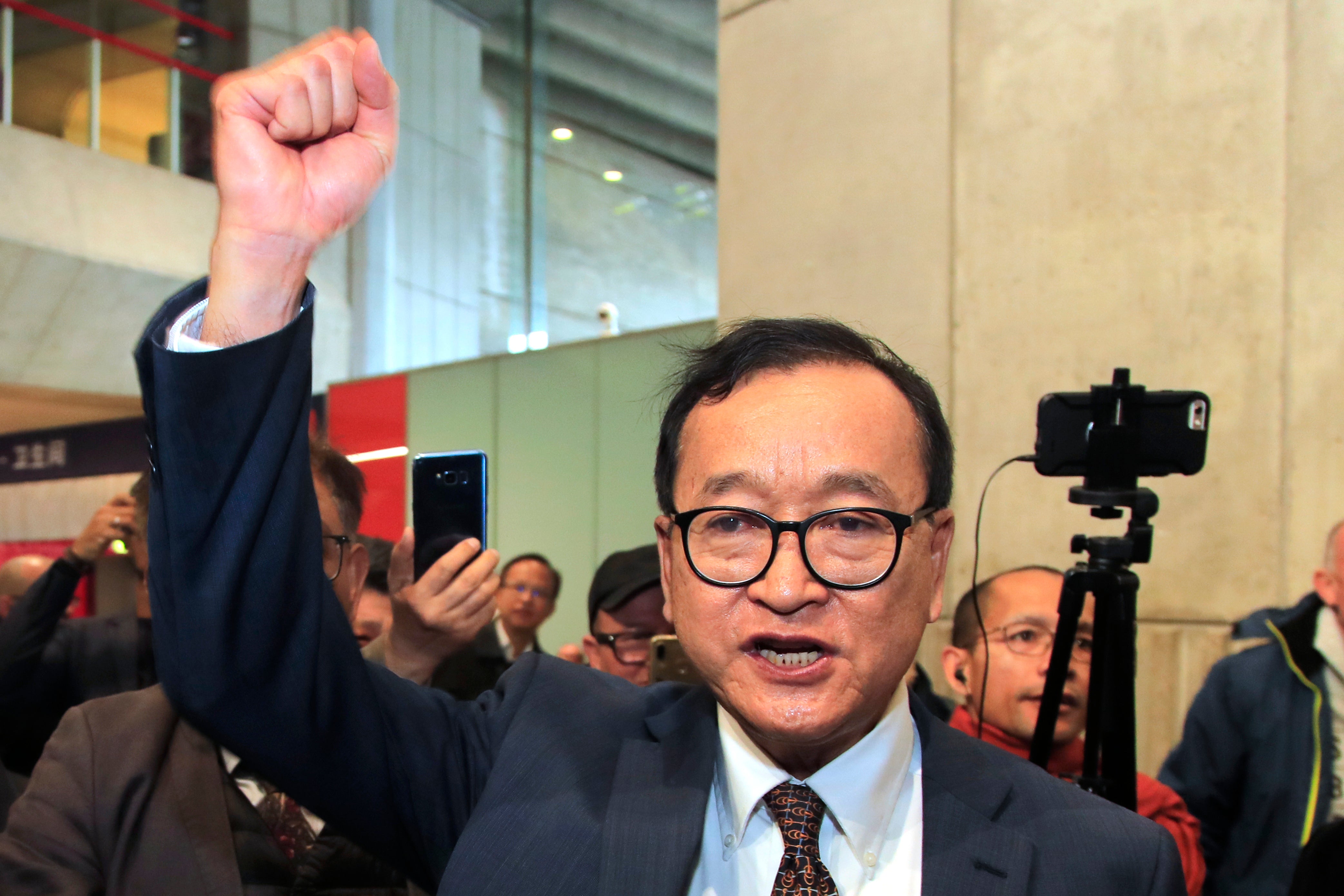Cambodian court sentences opposition leaders in absentia
A Cambodian court has convicted and sentenced the exiled leader and eight senior members of the country’s banned opposition party to more than 20 years in prison, effectively barring them from ever returning home

Your support helps us to tell the story
From reproductive rights to climate change to Big Tech, The Independent is on the ground when the story is developing. Whether it's investigating the financials of Elon Musk's pro-Trump PAC or producing our latest documentary, 'The A Word', which shines a light on the American women fighting for reproductive rights, we know how important it is to parse out the facts from the messaging.
At such a critical moment in US history, we need reporters on the ground. Your donation allows us to keep sending journalists to speak to both sides of the story.
The Independent is trusted by Americans across the entire political spectrum. And unlike many other quality news outlets, we choose not to lock Americans out of our reporting and analysis with paywalls. We believe quality journalism should be available to everyone, paid for by those who can afford it.
Your support makes all the difference.A Cambodian court has convicted and sentenced the exiled leader and eight senior members of the country s banned opposition party to more than 20 years in prison, effectively barring them from ever returning home
The decision made by the Phnom Penh Municipal Court late Monday was condemned by the head of the Cambodia National Rescue Party or CNRP, human rights organizations and the U.S. Embassy. The trial was held in absentia, as all the party leaders are living abroad.
CNRP leader Sam Rainsy, who was sentenced to 25 years, said the court acted at the behest of Prime Minister Hun Sen. Cambodian law allows people to be tried and sentenced in absentia. The other eight received sentences ranging from 20 to 22 years.
“A prison sentence from a court which is controlled by the government cannot be taken seriously," Rainsy said in a statement posted on his social media page. “Hun Sen is afraid of any risk of my returning to the Cambodian political scene. He also dreads the prospect of any free and fair election which would inevitably lead to the end of his current autocratic and anachronistic regime.”
Most of the opposition party leaders fled Cambodia in late 2017, when Hun Sen launched a sweeping crackdown on his opponents, and the CNRP was forced by the high court to disband and its lawmakers were removed from Parliament. Many people believe the court acted to ensure that Hun Sen’s Cambodia People’s Party won the 2018 general election, which it did by sweeping all the seats in Parliament.
Hun Sen has been in power for 36 years and has often been accused of heading an authoritarian regime. Several Western nations have imposed sanctions on his government, mainly after concluding that the 2018 election was neither free nor fair.
The charges again Rainsy and the other opposition figures come from an attempt they made in 2019 to return to Cambodia in an effort to start a popular revolt against Hun Sen. None managed to return, and Rainsy has lived in France since 2016.
The court also sentenced party vice president Mu Sochua, who lives in the United States, to 22 years in prison. Rainsy’s wife, Tioulong Saumura, received 20 years.
It also revoked their right to vote and stand in elections.
A spokesperson for Hun Sen's party, Sok Eysan, said in a statement posted on his social media page that the decision barred the opposition leaders from standing in the next elections set for 2022.
“This rebel leader will be staying out of Cambodia until he dies," Sok Eysan said.